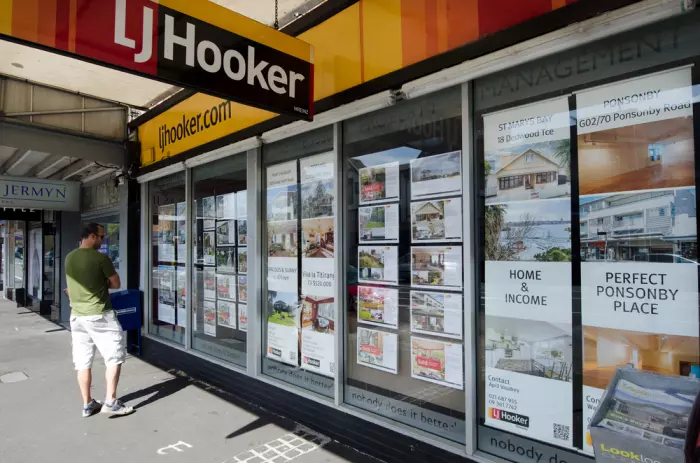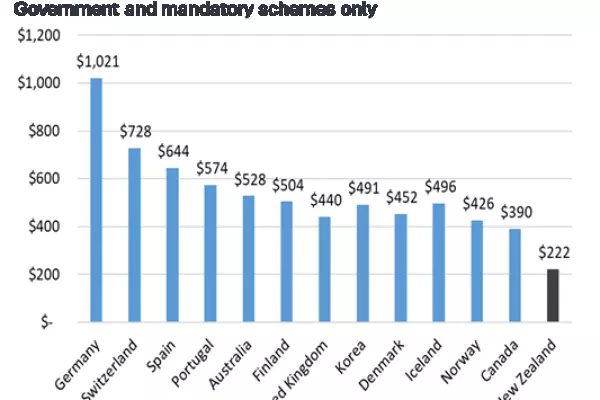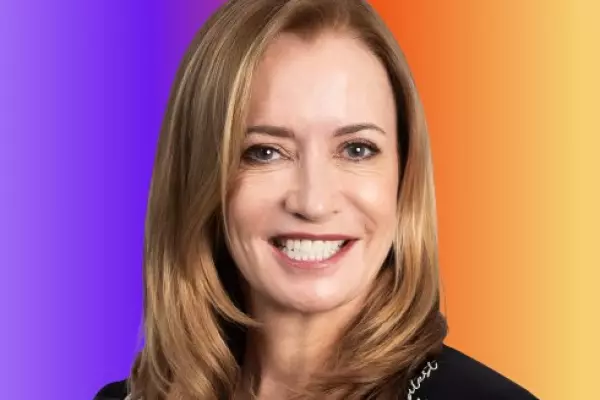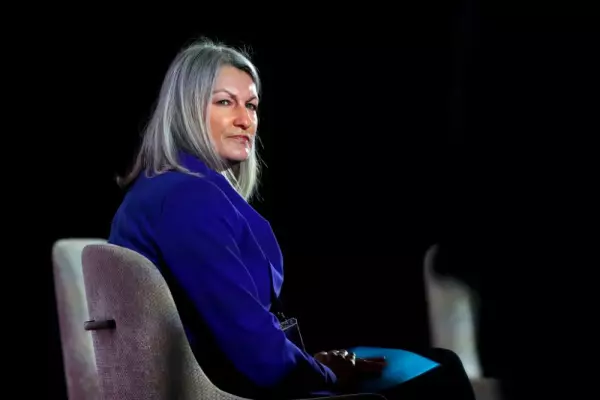BusinessDesk's investment editor, Frances Cook, responds to readers' emails on a weekly basis to answer various questions about money. Below you'll find her expert advice on a subject she's extremely passionate about.
Hi Frances,
Congratulations on the new column.
Some friends and I have been watching and listening to financial help personalities. More often than not, they tend to be from America (Dave Ramsey, Chelsea Fagan, etc). We have had a lot of discussions about the differences between New Zealand and the USA, particularly when it comes to housing.
My question is: Why is it that in NZ we can only get up to 5-year long mortgages? These seem to always be at quite high rates. In the USA, 10, 20, or even 30-year mortgage rates are common and are set at rates lower than we would see for 5-year mortgages. Are we paying a premium to borrow?
Thank you, B.
Hi B,
OK, buckle up. There are a few reasons for this and I’m going to whip through as many of them as I can, hopefully without getting us bogged down in the weeds.
One reason is pretty simple; New Zealanders just don’t seem to want it, and banks won’t offer a product if customers aren’t buying it.
New Zealanders tend to want the lowest rate they can get right now, and that’s often the shorter-term rates. The deal is, you get a bit less long-term certainty to get a cheaper rate now, and many homeowners seem to prefer that deal.
Infometrics principal economist Brad Olsen sent me some stats that illustrate the point.
He says: “At the end of 2021, only 3.1% of mortgaged lending was priced in for four-plus years (and just 0.0048% priced for five-plus years).
“BNZ had a seven-year rate previously, but removed it in quarter two of 2021, with no inquiries for the rate since 2018.
“Kiwis really focus on short-term rates. Currently, 62% of the value of mortgages is on a floating or one-year or less fixed term, and the lowest this share has ever been (going back to 1998) is 37%.
"The appetite just isn’t there for longer periods, and so the market doesn’t waste its time trying it out.”
Now, fair enough, why wouldn’t mortgage-holders want the lowest rate they can get? But why can’t you get US-style 30-year mortgages at a lower rate?
It’s partly culture and partly regulation.
In the US, you can fix it for 30 years at the lowest rate you can get. But if a lower one comes along, you can usually break your mortgage to jump on the cheaper rate, without getting stung with a break fee.
They’re protected by legislation that gives US borrowers the right to switch to the lower rate.
Meanwhile, in NZ, we don’t have those laws. Break fees are standard, and often in the thousands of dollars, sometimes tens of thousands.
So there’s another fair reason why NZ customers are cautious about locking in a mortgage for a longer term.
There’s also the issue that banks in the US fund some of their longer-term, cheaper rates, by on-selling those mortgages as investments to other clients.
It’s called “securitising”, and means the US banks don’t have to make all their profit off the mortgage itself, because they’ll be able to clip the ticket when they sell it on to investors.
That can technically happen in NZ, but it’s not so common.
Given that mortgages being on-sold as investments were one of the main triggers of the 2008 Global Financial Crisis, I’m pleased we don’t have that last factor as a big one in our market.
Hello Frances,
I am 78 years old (widowed) and fed up with both the attitudes and actions of the banks towards my generation. I totally love the way young women are investing and learning and sharing their information regarding money, unlike anything I was ever exposed to.
I own a fairly new freehold house and have a car to ‘last me out’ and have $60,000 invested earning next to nothing.
Recently, I thought, 'Bugger the banks!' and took $1000 out of my savings and started investing a bit in shares. I’ve been listening to the young women, reading what they say, been patient and cautious, and on top of that earned way more than the bank has rewarded me in eight years.
While shares are not entirely recommended for my age, anything that is recommended involves mostly old white men taking their cut and being ‘safe’ with my money. Of course, in the end I earn nothing or very little and my nest egg devalues (and makes me grumpy!).
Would you consider writing a few ‘words of wisdom’ for over 70-year-old women?
Regards, M.
Hi M,
I think your attitude is fantastic, and hope I still have the same curiosity and interest in trying new things when I get to your age.
You’re in a good position – owning your own home and having a car to get you around. That means you’re not likely to end up homeless if your investing goes wrong, because you don’t need the money to keep making mortgage payments.
You also sound like you’re interested in earning more on your money. These are key factors in determining if you’re someone who is suited to "higher-risk" investments.
The other thing to consider is, how would you feel if you dabbled in shares and things went wrong? If the market took a dive (and things are looking quite uncertain for the year ahead), how would you feel if you lost 30% of the value of the money you’d invested?
Would it make you lose sleep at night? Or would you wince a little, then hop in your car to meet up with friends and have a coffee?
You’re absolutely right that shares earn more money, but the fine print is that they often earn more money over time. The reason they’re often recommended for younger people is that they need time to give you the best results.
Over a period of five to 10 years, they’ve historically earned about seven per cent each year (or an even healthier 10 per cent per year, if you ignore pesky things like paying tax, or fees).
But that number is smoothed out over a period of time, with one year maybe earning a bumper 15%, and the next year maybe giving you a negative 2%.
If you’re OK with that and feel comfortable that your day-to-day expenses are taken care of … then why not dive in! If that gives you pause, then shares might not be the right strategy for now.
Here’s one way to approach it that might work for you. It’s called the Rule of 100.
The idea is that you subtract your age from 100, and that gives you an idealised percentage split for how to allocate your investments. So at 78, you might put 22% of your money into shares, and 78% into “safer” investments like bonds or term deposits.
The reason for this age-based strategy is that most people, as they get older, will want to spend more of the money that they’ve saved up in their nest egg.
After all, you don’t want to pop your clogs and leave behind everything you’ve worked for, for someone else to enjoy. They could just sell the house and get a tidy inheritance, I’m sure. The cash is for you to enjoy.
So, this rule of thumb aims to give you a balance between growing your money and investing for the future, while still giving you some money that’s safe and earning a reliable amount that you can spend. The price of that reliability is that you earn a bit less. It’s just how it goes.
It is, of course, only a rule of thumb. You might decide you want to put more into shares. Or some people who are younger might want to put less into growth investments than their "ideal" because they can’t stomach the idea of their shares going down in value some years.
It’s always very personal and needs to be adapted to what you want to do. But I like the Rule of 100 because it gives you a place to start, and a way to think about it.
Best of luck with whatever you choose to do.
Send questions to [email protected] if you want to be featured in the column. Emails should be about 200 words, and we won't publish your name. Unfortunately, Frances is not able to respond to every email received, or offer individual financial advice.
Information in this column is general in nature, and should not be taken as individual financial advice. Frances Cook and BusinessDesk are not responsible for any loss a reader may suffer.















